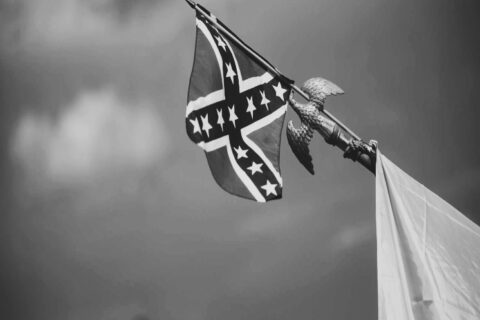Reading Padraig Martin’s recent article reminded me of something I came to the realization of a few months ago. Before I continue, I would like to say that this is in no way meant as a rebuttal to his article, as I quite enjoy his writing. It is more or less an expansion upon the “Generation Question” and the concept of generational divides. Anyway, I have found that it is often better to define generations based upon the decade one was born, as opposed to the arbitrary 15-to-25-year span method we use today.
If we go all the way back to the Greatest Generation, differences between it, the Lost Generation before it, and the Silent Generation after it, are few. This period of time prior to and during World War II tended to not experience much cultural shift between the elderly and the youth, often easily passing down customs and culture from one generation to the next. What muddies the water even further is that the Greatest Generation is often defined as being born between 1901 and 1924, as an attempt to encompass all the men who fought in WWII. I will allow this definition, as most generations prior to WWII tended to be relatively the same. Additionally, from the handful of WWII veterans I have met and the history I know of the generation, it was, for the most part, pretty reactionary, but also comprised the brunt of the leaders of the Civil Rights Movement. It typically moved between the extremes. Still, the majority fought the communist takeover of America quite hard. It produced stalwart Southern statesmen such as George Wallace, John Bell Williams, Strom Thurmond, Allan Shivers, and Herman Talmadge, all of whom were veterans of the aforementioned war.
It gets a bit easier to determine the Silent Generation, and they are the last demographic which can be explained using the modern breakdown. Born between 1925 and 1945, their earliest memories are defined by famine, poverty, and war. They make up the brunt of the Korean War veterans still living today. Though some were the misguided college students protesting Jim Crow laws and supporting communism the Civil Rights Movement, they are by far the single most legitimately conservative generation I know. They did not need the internet to know the things we here at Identity Dixie know. Seriously, they are pretty cool, and I greatly enjoy spending time with members of the Silent Generation.
With that finally out of the way, I can now get down to the meat and potatoes on this topic. Starting in the 1950s, generations are better defined by decade. Children of the 1950s still hold onto some of the customs of their forefathers. This is largely due to being born prior to the Cultural Revolution of the 1960s. They still experienced some normalcy, so many of them are still solidly traditional. That said, the negative influences of the post-WWII years and the dawn of the Sexual Revolution, the Civil Rights Movement, an unimaginably good economy, and being spoiled by their parents took a huge toll, and it is easy to observe that among those of this demographic (particularly when you interact with them).

It is the children of the 1960s which, unfortunately, showcase the absolute worst of Boomer behavior. That statement may ruffle some feathers, and I have met many born in this decade which are great and admirable people. That said, most of the negative Boomer stereotypes brought up and chastised within dissident circles, and this website, characterize 1960s children the most. I will not waste time describing those characteristics, as that would require an article all its own. If you have made it this far into the depths of the internet, you probably already know them anyway. This specific subset of Boomers (born in the 1960s) are the ones holding arguably the most political and financial power in America right now, and they are, at least in my state, the ones responsible for the destruction of Southern imagery and culture. I will give credit where it is due, these Boomers did experience the single most intense propaganda and media campaign of all living American generations.
I find Padraig’s definition of Gen X the most befitting of that generation (specifically, those born in the 1970s). By and large, they are some of the most fascinating people I have ever met. If you would like a detailed description of this generation, I urge you to read the linked article at the beginning; it is quite good. It is amazing to think about how small of a demographic this generation is. I know very few people born in the 1970s. That said, the few I have met are usually pretty conservative, a characteristic they have in common with the Silent Generation. Like the Silent Generation, the Third Law of Physics, “For every action, there is an equal and opposite reaction,” applies as well. Meaning that this generation produced a multitude of hardcore rightwingers while also creating a plethora of lefties.
1980s kids are an amalgamation of the 1960s and 1970s. Growing up in a similar culture to that of the previous decade, these people made up most of those who served during President Dubya’s invasions of Iraq and Afghanistan and the beginning of the War on Terror, often led by Gen Xers who served in the Gulf War. What makes this group so interesting is its beginning as having a Gen X worldview, only to end up chasing greenbacks and climbing the corporate ladder. It is bizarre and quite sad to see so many in this generation, who grew up quite conservative and “normal” within a Southern context, only to later forsake all of it by kowtowing to the current political agenda. Very few seem to be having a large number of children, more than two by today’s standards, with an astonishing amount turning out totally sterile (or purposefully getting vasectomies at a young age). The children of the 1980s are, more or less, the product of the pre-smartphone period of American iconoclasm and feminism.
From what I can tell, there is a stark dividing line between people born before and after 1990. It is shocking how intensely this decade stands in stark contrast to everything before it, almost as though there is something which happened between 1989 and 1990 that we have simply overlooked, a metaphysical Maginot Line of sorts. This also happens to be the decade I was born in. This generation grew up during the golden era of video games, experiencing the Super Nintendo, Nintendo 64, and the peak years of 2001 to 2011. It experienced, at a young age, 9/11 and the height of the disaster of the meat grinder that was the Dubya phase of the never-ending War on Terror. It saw the early years of cell phone culture and the advent of the smart phone. It witnessed the Great Recession as youths.
Most grievously, it primarily came of age, or were very young adults, during the Obama years, which induced them with the most intense pro-homosexual propaganda campaign than any previous generation. I once heard the father of a buddy of mine describe the first few years of Obama’s reign as marking the moment he realized our state was remarkably less Southern than previously. According to him, my state lost its culture and sense of self “almost overnight.” These factors carried with them macabre effects on 90s kids. This is the generation which leaned heavily into the homosexual and LGBT cultures we see in abundance today. It has all but totally cast off any semblance of Southern identity, culture, or outright normalcy. It embraced this impossible to ignore trend of emasculated boys, abhorrent women, and epidemic levels of adult children. Furthermore, this now fully adult generation has possibly the least financial opportunities of any other. The list goes on and on. Of all the decades I have discussed here, the 1990s generation have portrayed arguably the most devastating and brainwashed characteristics during adulthood than those previous.
I have not much to say about 2000s kids. What little commentary I do have is generally negative. The earlier ones have a good bit in common with the 1990s children, but the rest are more or less the product of being raised on iPhones. They come off as decadent, hedonistic brats with no culture or connection to their parents or grandparents and wholly lack even a semblance of a work ethic. The later ones are still a bit too young to see how they will pan out as adults.
It is important to remember that I am merely speaking from my own life experiences. Of course, I am not criticizing these generations as individuals, but as demographic wholes. There are many within each of these groups that I like, and think are great people. Each and every one of these groups I have briefly discussed could comprise their own respective articles. I do find it a devastating story when delving into these differences. Anyway, the contemporary labeling of generations is in need of reevaluation; although, there is a bit of grey area during the transition years at the decade extremes.
“The White people of the South are the greatest minority in this nation. They deserve consideration and understanding instead of the persecution of twisted propaganda.” –Strom Thurmond






I would slightly disagree with the notion that it’s better to define generations by decades. Because it’s not like things magically change as the calendar changes to a new decade. For example 1998 is not that different from 2001, 1957 is still very similar culturally to 1962. And this is very much relatable to the time period people were born. With the way things change so fast it just makes sense. Someone born in 1992 has a much similar life story to someone born in 1988 than they do with some one born in 1999. Instead I like to focus a key events that happened.
Boomer Qualifications/Characteristics
-Bonafede Members have at least a vague recollection of JFK Assasignation
-You were alive before the tv stations switched over to color tv (1965)
-Girls were often still required to wear dresses/skirts to public school when you were young.
-You remember using rotary phones.
-Quintessential Boomers were adults by the 1970s
-Most were 17/18 by the time Vietnam officially ended (1975)
Gen-X
-Most didn’t have cellphones in High School.
-Quintessential Xer was a teenager in the 1980s-early 90s
-They were the bulk of the og Grunge fans.
-Many served in gulf war.
Millennials
-They have a living memory of 9-11, as well as life in the pre 9-11 era.
-They remember going to restaurants and hearing “smoking or non-smoking?”
-Quintessential Millennials were at least in Kindergarten before the 20th century was over.
-Many of them had a Myspace and Facebook wasn’t a popular option.
-They are the last generation to experience some semblance of a world that hadn’t been completely taken over by internet, computes, social media, and smart phones.
-Yet they are also the first generation to fully grow up with Political Correctness. As a result (unlike many in previous generations) many are deeply offended by jokes that involve blacks or other protected classes.
-Family had tube TV early on.
-Called their friends on landline since family didn’t have cellphone yet.
-They finished high school right before smart phones became a mainstay in the early to mid 2010s.
-Rock/Alternative still had mainstream popularity in high-school/college/young adult years.
Gen-Z
-As mentioned in article, they are the most deracinated and disconnected from meaningful traditions.
-Unlike many millennials who were raised by Boomers and Gen-X, many Gen Z folks were raised by Millennials. This further contributes to their deracemization.
-Most members of Gen-Z’s first phone was a smart phone.
-Many of them (especially the younger ones) have little to no recollection of how life was before social media and smart devices.
-Many of them have no memory of the Dubya Era (2001-2008), and instead have grown up in a culture of constant race war and anti-white propoganda.
-Living in a multicultural hellscape is totally normal
Great TL;DR Rob
I would also add RE Millennials: as far as videogames go, we were the last generation to’ve grown up playing primarily either single-player or split-screen games. Online gaming did exist in the late 90s and early 00s, when we were coming of age, but it wasn’t ubiquitous or considered a necessary feature.
It was much easier to concentrate things since always-on broadband Internet was fairly new for most people and mobile Internet I.E. smartphones didn’t yet exist writ-large.
I remember actually having to figure stuff out for myself, or if I was stuck on a particular point in a game, having to read through a massive HTML .txt file to get to the part of the walkthrough that was relevant to my progress in the game.
I was one of the last holdouts for getting a cell phone, but I don’t recall the old school flip phones being overly socially disruptive, at least in comparison to the Current Year. Since there were no full-screen keyboards, you had to peck out the message, ergo you were very limited. Stuff like “so-and-so are going to fight each other at the park soon, be there!” or “Erica got her sister to buy us vodka, you should come over after midnight”.
So many embarrassing things that happened as a teenager that everyone forgot about because mobile video-recording technology wasn’t yet in everyone’s pocket 24/7. These Zoomers and Gen Alpha folks are very unlucky in that regard– embarrassing moments from their childhood will be immortalized forever in the digital realm
Tl;dr effort post is too long
Being an early Gen X and having kids in my 30’s I see Gen Z a bit differently. You have the carry over from Millennials. But more often I’m seeing smart kids that are seeing through the crap.like Gen X they are not hopeful. But they see the world for what it is. There is hope still.
There is hope in God, but no hope of this american society improving. We’ve gone too far off the deep end there will be no peaceful solution to the mess we’ve gotten ourselves in. I am sorry that you have to raise kids through this I feel for you on that one.